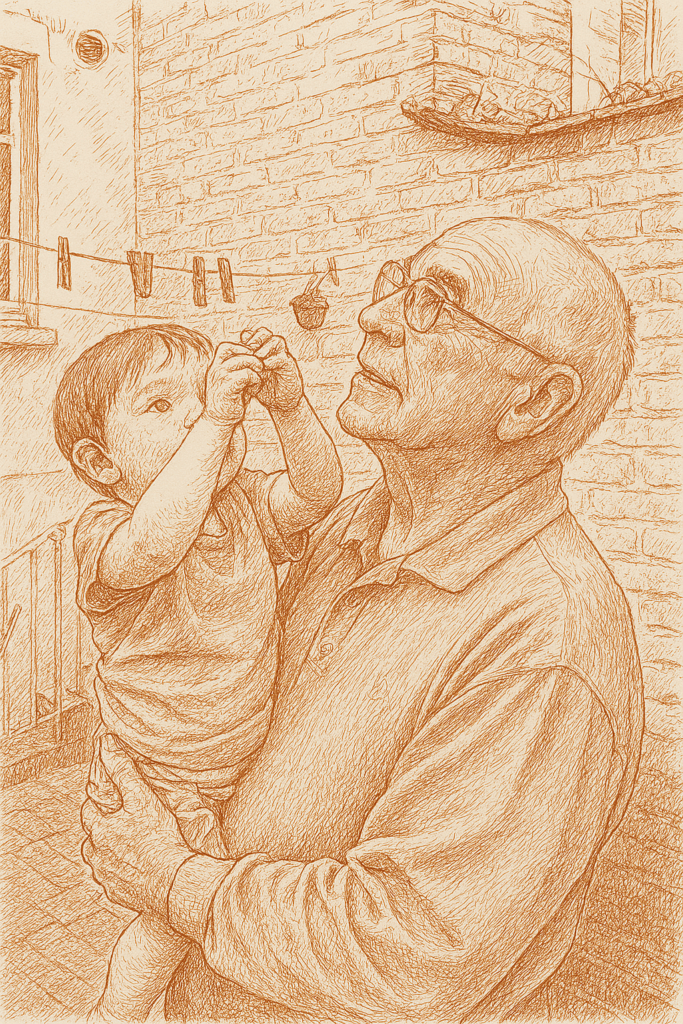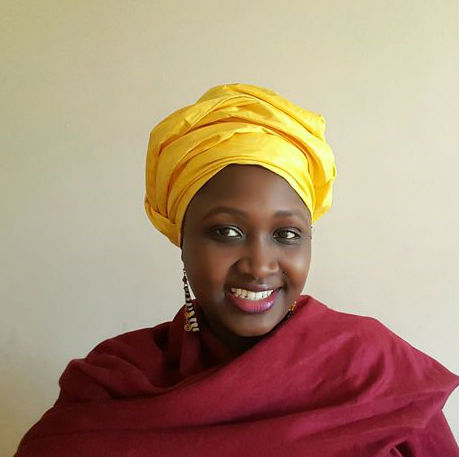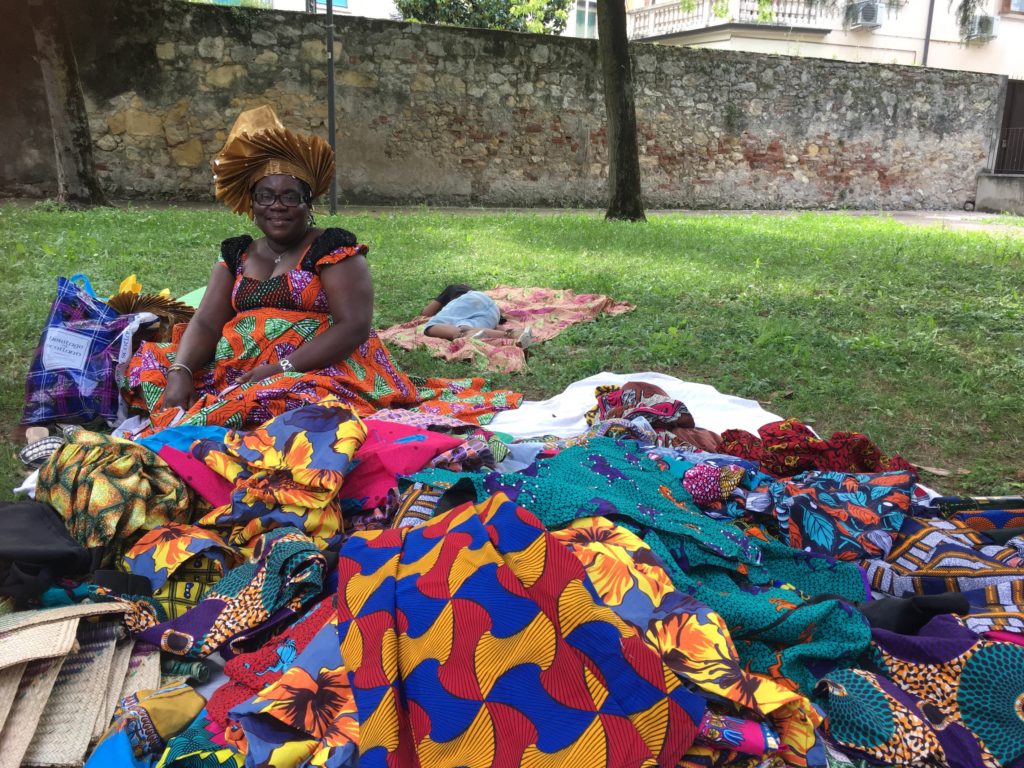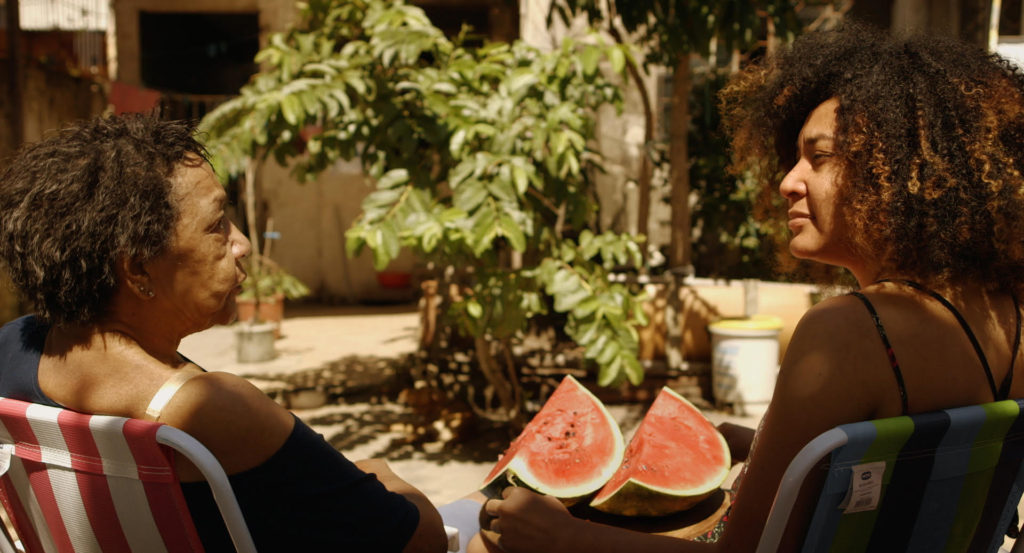See you next Wednesday, Nonna. I love you.
We don’t say those things—we already know them. Take a tangerine in your bag. But I don’t feel like a tangerine…
Written by Aurélia Gervasoni
My maternal grandparents never talked about their feelings. They both arrived in Belgium in their twenties and did not speak French. They were the children of immigrant parents who had emigrated to Canada. I stayed with them until the age of 10 and used to visit them regularly.
During these visits, which happened each Wednesday, they would try to hand me a tangerine and say: “Want to take that with you? Why not? Staying for dinner?”
At the time, I did not understand why a small tangerine mattered to them so much. Sometimes, I would slip it into my bag just to close the debate.

As someone who has always lived through words, I sometimes thought they didn’t value who I was becoming— or maybe didn’t even love me. Later, I understood that their love language was rooted in a much more complex understanding of relationships, which was mixing their heritage with the circumstances of immigrant life.
Above all, shaped by the silence imposed on those, never given the words. The mindset of “we endure so you can thrive” does not leave much room for poetry. How could I expect them to have tenderness in words, when they felt deeply but were never shown how to share it?
And yet, if I now have the verbal language to tell my future children, I love them, it’s because they gave it to me. They walked me to school and rehearsed my lessons with me until they could no longer follow. But more essentially, they passed me down gestures that hold the world.
Their love was crystallised in that determination and obstinacy, to enable me to live better. It was not the gentle affection sheltering you in a chrysalid, but the one which instils from your first steps, the sense that you are entrusted to nurture the seeds of possibility planted for you.
Their love was crystallised in that determination and obstinacy, to enable me to live better. It was not the gentle affection sheltering you in a chrysalid, but the one which instils from your first steps, the sense that you are entrusted to nurture the seeds of possibility planted for you. Born of exile, they tilled an inhospitable soil, so I could one day run barefoot and grow what would nourish my fulfilment. That trust is also a responsibility weighing when harvests fail: if my field floods, do I not betray them?
One day, I realised they didn’t understand the academic path I was pursuing, but their incessant questions about my progress were their way of expressing pride. To surpass those who taught you to read is both a victory and an honour to every part of their journey—from leaving their village to their years of work in the big capital—and an intimate separation from which one never fully returns.
It’s like throwing yet another country between theirs and mine, this time one beyond all geography. Trying to explain the scope of what’s now possible for me, thanks to the uprooting of their own soil, is one of those discussions you cannot have without feeling both immense gratitude and the aching awareness of sacrifice.

But more than sacrifice, their hands reaching for mine, guiding me everywhere, the nights spent watching over my fevered forehead—these gestures meant abundance. The gift of abundance that every immigrant who hears the sound of the train, the waves, or the truck longs to offer, the hope taking hold of them, they embodied it so I could become it.
The ancient absence from their own childhoods, silently metamorphosed, through the strength of a back that bends only to carry a newborn into giving. Exile pulses through my veins because it moved my ancestors, and then my grandparents, and I feel it shaping my identity like salt that, grain by grain, returns to the sea.
Everything calls to me, and I recognise myself everywhere, because I am that words cannot express: they left the land of their birth so that I would never have to emigrate from the person I became. They gave me many homelands so I could find an identity beyond them and then return to each, like rain falling from clouds that have had their fill.
I didn’t find their love in the words they couldn’t convey, but in the sound of the constantly lit-television. In the scent of a table welcoming everyone , the silence was sometimes engulfed in what we could have said, which was in the ability to speak to everyone, to lead with humility. Never to look away—whether it’s to lend your heart to those who no longer have one or to oppose discrimination.
I didn’t find their love in the words they couldn’t convey, but in the sound of the constantly lit-television. In the scent of a table welcoming everyone, the silence was sometimes engulfed in what we could have said, which was in the ability to speak to everyone, to lead with humility. Never to look away—whether it’s to lend your heart to those who no longer have one or to oppose discrimination.
What they passed on doesn’t live in the words I try to make mine, so they may touch others, but in the transmission of what they considered essential, in the summer fireworks in the village that speak of a return, impossible yet tried.
A freedom that does not forgive compromise and that cries out between the mountains and the alleyways of the abandoned village, that this is where it begins, but not where it will moor. To deny every imposed boundary by endlessly moving beyond them, knowing they could never reclaim the childhood they left, so I could have the privilege to make mistakes. A fierce spirit of heart and impulse, which owes its spontaneity to the trust that existed even in silence, including presence: my Nonno, my Nonna—in whose home I could take refuge to invent all games and secretly eat omelettes, dazzled by the smell of after-shave mixed with tobacco and coffee.

There, even without a word, holding together a balance some inherit—but which they had to invent, moment by moment, without a model-this pillar still walks beside me when I return to the village house in the palm of a warm Italian night.
Being an immigrant means living between two selves: the one who stayed behind and the one who can never completely return. They loved me with those fragments, so I could weld them into my own becoming, with words now mine to explore. I was born on a land of the exiled, from which I had to leave to find a new island. Belonging nowhere, I can choose to go anywhere—they had nothing to leave me with but this essential ability. I also realised that innocence is only truly lost when one of the witnesses to one’s childhood dies, and so ceases to make it breathable.
A few weeks before he passed away, I wrote a few lines to my grandfather while I was abroad. He said nothing—no call, no reply. I knew that words would never touch him the way a visit would, so I didn’t insist. When we emptied the house after the funeral, the note was there on the kitchen table.
Dear Nonno, I wanted to tell you. I recognise you in every person who speaks with that subtle accent of yours. I find you in the way I say “ciao ciao” when I hang up the phone. And that melody that carries your words. Take care of yourself, even if I’m far. You and I are sensitive in the same way. And I see myself in what you are, and have always been, for me.
Their love language was the passing on of what was truest in them: the longing to recover their homeland, and the refusal to be confined by it. My grandparents had eyes that shone with everything they didn’t know how to say.
They placed into my name two worlds that now meet—because they dared, in the solitude of imposed silence, to exile themselves from their land, and sometimes from themselves. By who they were—not what they said—I know that love is One and passed on in Infinities. Because my bag is full of surreptitious tangerines, slipped in secretly, without a word.
The Night Passes
There will always be someone who, without a word,
Calls you by the name the child in you still recognizes.
I was the childhood that grew too fast,
One night passed, and your hand slipped away,
Yet I still feel it guiding me between the usual path and the one we used to wander.
There will always be someone who never said everything,
To whom words were never given.
It was another language that united us.
I will speak it again, with faltering accent or tone,
And that chain in my throat
Already knew everything—and so did we.
The wheels, the propellers, the waves—
You turn toward the winds that brought you.
You left in order to begin.
Getting here was proof of everything.
The night passes, and it had never promised anything—
Not the land of arrival, nor the always-near blue eyes.
Everything melted inside your voice.
The night passes, and I still feel it.
The night passes, and I still feel you.
Aurelietta, Aurelietta.

Aurélia Gervasoni (2003) is a Belgian poet, artist, journalist, and lawyer. She travels the world in search of constant inspiration. You can find her personalised poetry business here: SINTONIA | Custom Poems for Individuals and Companies | Aurelia Gervasoni
Find Aurelia’s publications here: Writing Portfolio | Instagram | Linktree.



